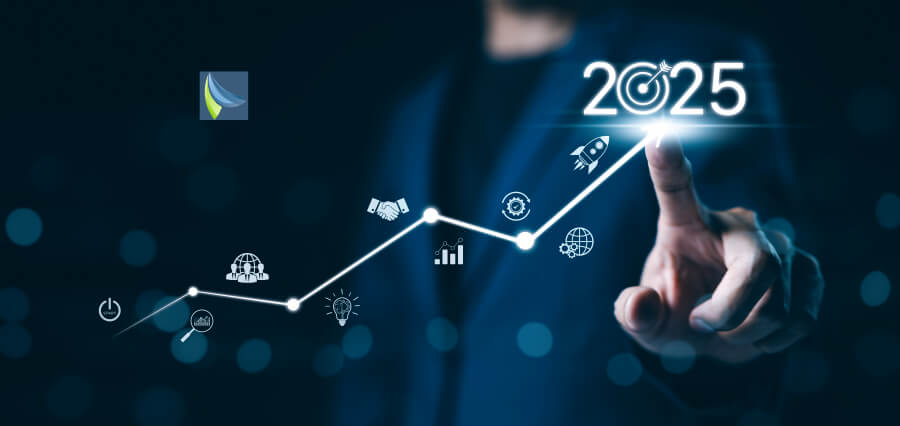Leadership is the heartbeat of every performing organisation, inspiring teams toward aims and ensuring a strategic vision translates into reality. Looking forward toward 2025, the faces of leadership across the globe have dramatically changed—a transformation that, to a larger extent, arises from technology use, changing staff expectations and the advanced global business scenery.
Leadership management is no more just about “managing staff” but the agility, emotional intelligence, creativity and e-literate skill set. The future calls for leaders who are going to master complexities and adapt to a digital-first, interconnected world.
The notion of mapping the future becomes integral in the context of this transformation. In 2025, leaders should be well able to understand emerging trends, collaborate across different environments and utilise data for viable decisions.
The leadership evolution process is cultivating skills that, while not as critical in the past, are now central to success: emotional intelligence, sustainability and inspiring and motivating a global, virtual workforce. Mapping the future of leadership requires a deep dive into these areas, considering how leadership must grow to meet both current and future challenges.
The Current Leadership Landscape: Where We Stand
Leadership today works in a rapid change climate. With the coming of digital technologies, automation, Artificial Intelligence (AI), and big data, traditional leadership models are being displaced by more fluid and dynamic structures. Leadership today is no longer about managing resources and driving results but about inspiring teams, promoting innovation and dealing with technological disruption.
Furthermore, workforce dynamics have altered. The two largest generations of employees are the millennials and the Gen Z members, with preferences that include, but are not limited to, purpose-driven work, work-life balance, social responsibility, etc. Such needs are shaping leader-to-team behaviours, demanding of leaders authenticity, transparency, empathy, etc.
The leaders should now emphasise the culture of inclusion, collaboration and continuous learning, as these are the core drivers for engaging employees and organisational success.
Leadership Evolution: A Shift Toward Agility and Innovation
Mapping the future of leadership in 2025 requires a dramatic shift toward agility and innovation. It will call for leaders who can manage in a disruptive environment, characterised by continuous change. This has become ever more relevant because the industries will go through transformations where they become more digital than not.
One of the new changes about the future of leadership will be driven by the integration of technology. The use of AI, machine learning and predictive analytics will be a major source of decision-making.
However, relying on these technologies is not the way forward for leaders; on the contrary, their realisation in organisations will require integrated skills of both technological expertise and human-centred leadership. Effective leaders will need to use technology not as a crutch but as a tool that empowers employees, enhances collaboration and improves productivity.
The Rise of Emotional Intelligence in Leadership Evolution
Understanding emotional intelligence, or EQ, is at the heart of Mapping the Future of Leadership. In a workplace that requires constant collaboration and cross-functionality, EQ has emerged as one of the critical skills needed to lead. A person with high EQ will be more effective at managing diverse teams, handling conflicts and creating a positive culture at work.
EQ encompasses self-awareness, empathy, motivation, social skills, and the power to control your emotions. By 2025, EQ is going to prove more crucial in the world than ever before. In an interdependent world, leaders will need to understand the emotional needs of the teams, cross-cultural communication and trust development. Leaders who have high EQ will be able to motivate the teams and steer through the turmoil of an advancing world.
Sustainability and Ethical Leadership in 2025
The other major evolution in leadership will focus on sustainability and ethics. In response to the now imminent and growing threats of climate change, social inequality and political instability, leaders will need to create sustainable long-term strategies that not only guarantee sustainability for their organisations but are also for the betterment of the larger world.
The leaders will have to balance the demand for profits with the demand for social contributions in 2025. It would call for leaders to think differently and perhaps to rethink business models that must take sustainability across all aspects of the organisation—from reducing their carbon footprint to being a champion of diversity and inclusion. This dimension of Mapping the Future will prove necessary for firms hoping to maintain or regain legitimacy as concerned consumers’ awareness of the consumption world increases.
The Global Workforce: Leadership for a Remote World
Perhaps the most transformative shift in the future of leadership is the growing trend of remote and hybrid work models. The COVID-19 pandemic accelerated the shift, and this is likely to continue beyond 2025. Leaders will need to lead teams that do not necessarily have to be bound by geographical locations. This requires unique leadership skills.
As remote work becomes the new normal, the importance of effective communication, trust building and virtual team management will grow. This would include creating the appropriate environment, through which all those employees scattered from different corners can feel attached and motivated in work. Being able to lead within a globally dispersed workforce is the defining leadership characteristic of 2025 and later.
End Note
The leadership evolution towards 2025, therefore, would be characterised by agility, emotional intelligence, sustainability and a strong grasp of technology. Mapping the Future of leadership would thus demand that these competencies must be balanced by leaders, driving innovation and fruitful collaboration in an increasingly complex and fast-paced world.
The leadership in 2025 is going to be a setup that emphasises empathetic leaders and ethical decision-making. The organisations of tomorrow will flourish as the world keeps growing, dependent on the acceptance of change by the leaders, affluence in the usage of technology, and well-crafted and promoted inclusivity.
Source:https://www.insightssuccess.in/mapping-the-future-leadership-evolution-for-2025/

